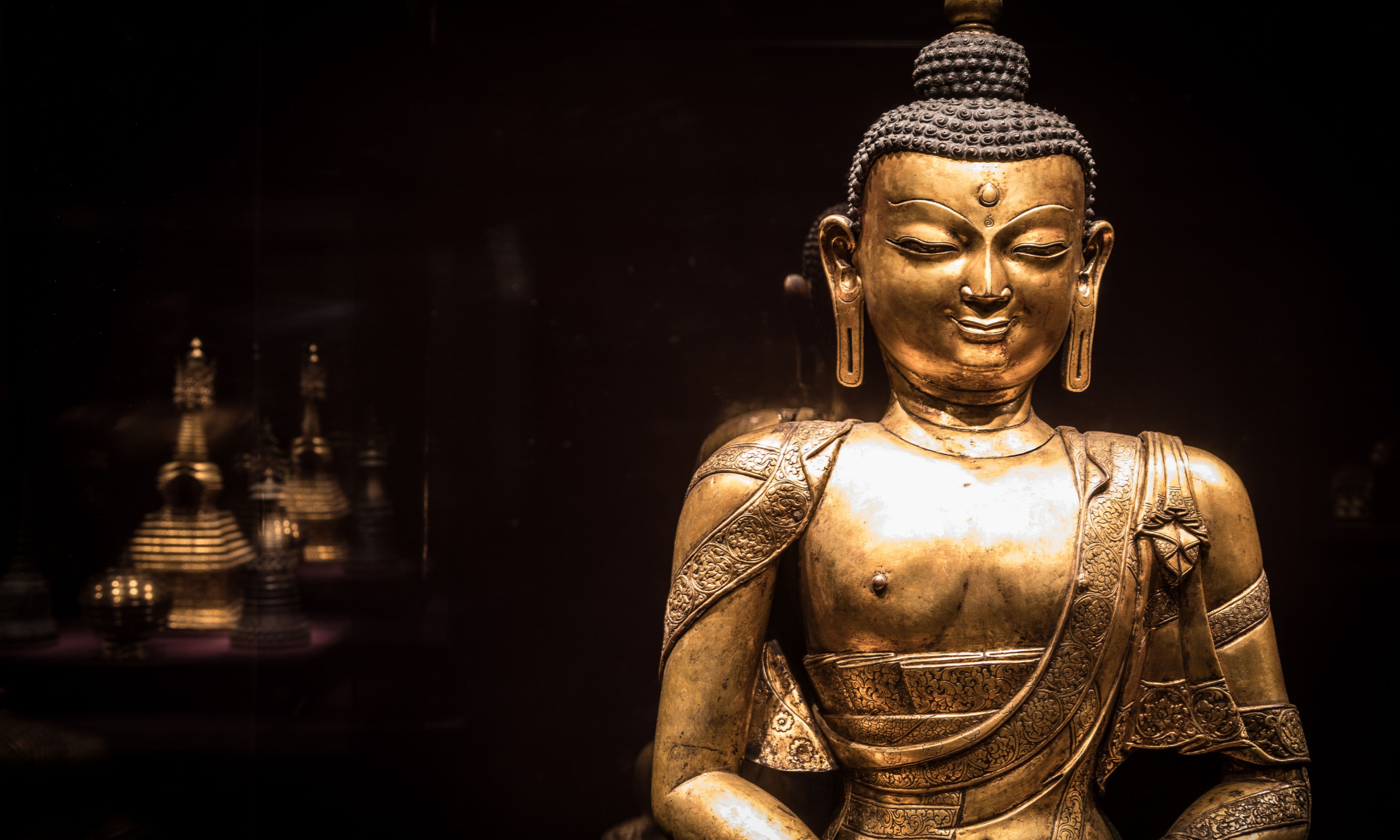Installation view of Encountering the Buddha: Art and Practice Across Asia at the Smithsonian National Museum of Asian Art Courtesy the Smithsonian Institution
The Smithsonian’s National Museum of Asian Art has commissioned the minimalist composer Philip Glass to craft a hypnotic 90-minute performance responding to artworks in its long-term exhibition Encountering the Buddha: Art and Practice Across Asia, which features more than 240 sacred Buddhist objects including pieces from the collection of the New York-based collector Alice Kandell.
Kandell’s lifelong fascination with Buddhist art began when she traveled to Sikkim in the 1960s to attend the coronation of her friend Hope Cooke, a former classmate from Sarah Lawrence who happened to meet and marry the crown prince of Sikkim—a previously autonomous region (now part of India) between China and Tibet that was a hotspot on the “hippie trail”, a popular overland travel route between Europe and South Asia that became more fraught with the advent of political turmoil in the Middle East in the late 1970s.
Kandell was a psychology student at Harvard University at the time and, despite her parents’ wishes, skipped her exams to make the trip, with the encouragement of her professor. “He said that history was being made, and that someone from the department should be there to witness it,” she says.
Kandell acquired most of her collection first-hand. “I bought some pieces at auction but gave them all away over time,” she says. “The Tibetan people didn’t want to sell these things. Some years after the Chinese annexation, their children and grandchildren had to let them go—they wanted televisions, refrigerators.”
Detail of the Tibetan Buddhist Shrine Room from the Alice S. Kandell collection Photo: John Bigelow Taylor (2017)
The immersive Buddhist shrine room at the National Museum of Asian Art—the institution’s most-visited exhibition—was assembled in 2010 with works from Kandell’s personal collection, and was expanded in 2017 with objects that have never been shown in public. But Kandell has built an even more impressive shrine room in the basement level of her own Upper East Side apartment, which features around 250 objects that engulf the space and dizzy the eyes. She kindly asks visitors to be silent while visiting the shrine.
Kandell has donated the objects in the Smithsonian’s shrine to the Arthur M. Sackler Gallery in Washington, DC, and plans to donate her entire Buddhist art collection to a regional American museum, although the official announcement is still forthcoming as negotiations are ongoing. “These things don’t belong to me—I just took care of them for some years, but they belong to the world,” she says. The collector adds she is now turning her attention to Russian icons.
In a video released by the Smithsonian this week, Philip Glass, a practicing Buddhist, and his ensemble present an engrossing performance highlighting some works in the Kandell collection, with small intermissions where Glass offers wisdom on meditation, the power of being attentive and present in the world, and how technique and inspiration must come together to create something that is truly useful and transcendental.

